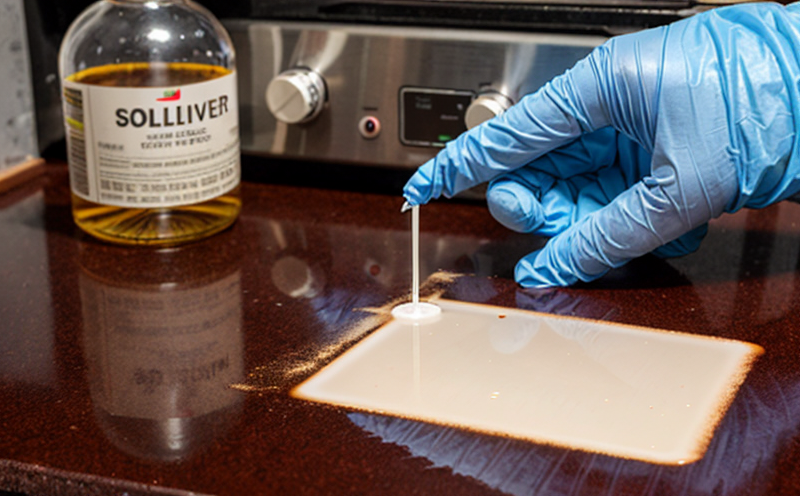JIS K0088 Solvent Residue Testing in Industrial Wastewater
The JIS K0088 method is a stringent standard used to quantify solvent residues in industrial wastewater. This method ensures that industrial processes adhere to environmental regulations and maintain product quality by minimizing the release of harmful substances into water systems.
Industries such as pharmaceuticals, electronics, paint manufacturing, and printing often use solvents during their production processes. These solvents can be hazardous if not properly managed or disposed of. JIS K0088 provides a reliable means to measure these residues in wastewater, ensuring compliance with environmental regulations.
The testing process involves several steps that ensure accurate measurement. First, the industrial wastewater sample is collected and preserved according to specified guidelines. The sample must be representative of the wastewater being tested to ensure valid results. Next, the sample undergoes a series of purification steps to remove non-solvent compounds before analysis.
The purification process typically involves solvent extraction followed by distillation or solid-phase extraction techniques. This step is crucial as it ensures that only the solvent residues are present for quantification. After purification, the solvent residues are analyzed using gas chromatography coupled with mass spectrometry (GC-MS).
Gas Chromatography-Mass Spectrometry (GC-MS) offers high sensitivity and selectivity necessary for detecting even trace amounts of solvents in complex matrices like industrial wastewater. The method allows for precise identification and quantification of various solvent compounds, including alcohols, ketones, esters, and hydrocarbons.
The JIS K0088 standard specifies the acceptable levels of solvent residues based on the type of industry involved and the specific process being analyzed. Compliance with these limits is critical to maintaining both environmental sustainability and product quality.
Understanding the importance of this testing method can help stakeholders make informed decisions about waste management practices. By adhering to JIS K0088 guidelines, industries demonstrate their commitment to reducing pollution and protecting public health.
| Step | Description |
|---|---|
| Sample Collection | Collection of representative wastewater sample according to specified guidelines. |
| Purification | Solvent extraction and distillation/solid-phase extraction to remove non-solvent compounds. |
| Analysis | Detection and quantification using GC-MS. |
The JIS K0088 method plays a vital role in ensuring that industrial processes are conducted responsibly. By providing accurate measurements of solvent residues, this testing procedure helps maintain regulatory compliance while promoting sustainable practices within the industry.
Scope and Methodology
- Purification steps to ensure only solvent residues are analyzed.
- Analytical method using GC-MS for precise identification and quantification.
- Detection of various solvent compounds including alcohols, ketones, esters, and hydrocarbons.
The JIS K0088 standard specifies the acceptable levels of solvent residues based on industry type and process. Compliance with these limits ensures both environmental sustainability and product quality.
For detailed steps on how we perform this testing, please refer to the table provided above. This table outlines each step involved in the test procedure, from sample collection to final analysis. Each stage is crucial for obtaining accurate results that meet international standards.
Benefits
- Ensures compliance with environmental regulations by accurately measuring solvent residues.
- Promotes responsible waste management practices within the industry.
- Helps maintain product quality by minimizing the release of harmful substances into water systems.
- Facilitates informed decision-making regarding waste management strategies and process improvements.
The JIS K0088 method provides numerous advantages for businesses operating in sectors that utilize solvents during their manufacturing processes. By adhering to this standard, companies can ensure they are meeting legal requirements while also contributing positively to environmental sustainability efforts.
Environmental and Sustainability Contributions
The JIS K0088 method significantly contributes to the environment by promoting responsible disposal practices for industrial solvents. By accurately measuring solvent residues in wastewater, this testing procedure helps prevent contamination of water sources and supports cleaner production processes.
This method also plays a key role in promoting sustainable development goals by encouraging industries to adopt greener technologies and practices. Through compliance with JIS K0088 standards, businesses can reduce their ecological footprint while improving overall operational efficiency.





